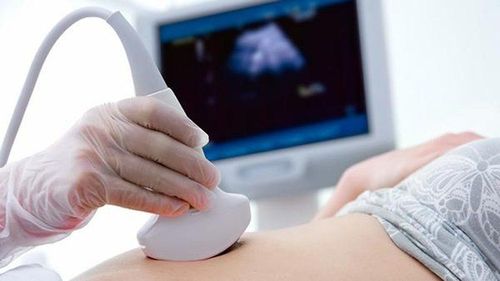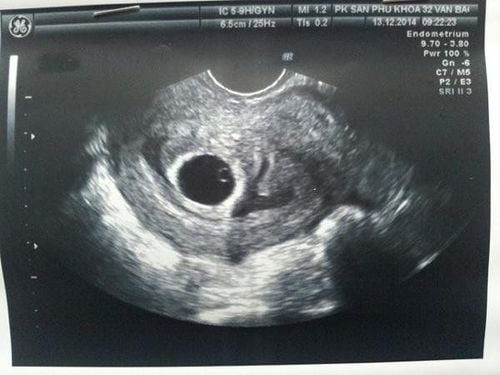This is an automatically translated article.
Before becoming pregnant, a woman needs to have careful psychological preparation as well as health history to be able to have a healthy pregnancy for both mother and baby. The better prepared you are, the less confusing and difficult you will be during pregnancy. The following are issues you may be concerned about before getting pregnant
1. Body movement
Before you start getting pregnant, think about how to prepare your body and your life for little joys.
Get in shape ahead of time (although your waistline will disappear for a while) to make your pregnancy and delivery easier. Try to get 30 minutes of exercise to get your heart working properly most days. Walking, biking, and swimming are all great ways to get fit. Or take a prenatal exercise class.
2. Eat well
Soon you will crave ice cream and pickles. For now, focus on eating well. You'll need plenty of protein, iron, calcium, and folic acid. Stock up on fruits, nuts, vegetables, greens, whole grains, and low-fat dairy products. Cut down on chips, baked goods, soft drinks, and other junk foods that contain empty calories.
3. Take folic acid
It helps prevent serious birth defects that can happen before you know you're pregnant. You'll find this B vitamin in many foods, including green vegetables, citrus, and beans, but most women need a pill to get enough.
Start with a daily vitamin. When planning a pregnancy, you need 400 micrograms of folic acid per day, the amount found in most multivitamins.
4. Track your weight
Being too thin can make it harder for you to get pregnant. Being too heavy can also cause problems: It increases the risk of diabetes and high blood pressure. It can also make labor last longer - and you don't want that! Talk to your doctor about a healthy weight for you.

Một cân nặng phù hợp sẽ giúp bạn có một thai kỳ khỏe mạnh hơn
5. Health check before pregnancy
Want to share your plans? Start with your doctor. Watch them a few months before you start trying to get pregnant. Ask about:
Tests or vaccines you need Prenatal vitamins How to manage or control any health conditions you have Medicines you can and cannot take during pregnancy.
6. Genetic counseling
No crystal ball can predict whose eyes your child will receive. But your doctor may recommend prenatal tests if your family history or ethnicity puts you at high risk of having a baby with a genetic disorder. A simple blood or saliva test can see if you carry the gene for cystic fibrosis, fragile X syndrome, Tay-Sachs disease, or sickle cell disease.
7. See your dentist
If you are not someone who regularly flosses, now is the time to make it a habit. It's good for your baby as well as your smile. Pregnancy increases your risk of gum disease, a health problem that can also make you more likely to go into labor earlier. So clean and examine your teeth, and brush, floss, and rinse with an antiseptic mouthwash daily.
8. Cut down on Caffeine
Some experts recommend no more than 200 milligrams of caffeine per day while trying to get pregnant and during pregnancy. That's about a 12-ounce cup of coffee or four 8-ounce cups of tea. Instead, switch to decaf or warm milk.

Chuẩn bị kỹ càng trước khi mang thai giúp đảm bảo sức khỏe cho cả mẹ và bé
9. Quit smoking
Smoking can make it harder for you to get pregnant. And smoking while pregnant can increase your chances of problems like premature birth, low birth weight, and miscarriage. It also puts your baby at risk for sudden infant death syndrome (SIDS).
Ask your partner to quit smoking too. Secondhand smoke is also very dangerous. And it can hurt male fertility.
10. Stop drinking
Since you don't know exactly when you will get pregnant, give up alcohol now. Drinking alcohol during pregnancy increases your risk of birth defects, and alcohol can also sometimes make it harder for you to conceive.
Don't panic if you had a beer or a glass of wine before you knew you were pregnant. A single drink is probably safe, but since doctors don't know what amount of alcohol causes problems, use it safely and avoid alcohol altogether.
11. Financial preparation
Newborns need a lot of things. They go through about 8,000 diapers before being potty trained! You will need clothes, a car seat, a stroller and possibly formula and bottles. Make a list of supplies and start looking now. Remember that your expenses will also include doctor visits and possibly childcare.
12. Check the leave policy where you work
If you work, consider what you want to do after the baby is born. Some companies offer paid time off after you give birth. Others offer unpaid time off. You can also use sick days or time off before returning.
To best prepare for pregnancy and childbirth, you can refer to the pre-pregnancy health care and counseling program of Vinmec International General Hospital. The program is consulted by a team of leading experts and doctors with important content on pre-marital health care such as: Support for issues related to family genetics; Screening to detect healthy people carrying disease genes; Prepare for assisted reproductive services; Pharmaceutical use and pregnancy; Vaccination Vaccination; Food use and pregnancy; Prevent exposure to harmful chemicals and dangerous physical agents; Other health problems for you and your husband (wife)...
Please dial HOTLINE for more information or register for an appointment HERE. Download MyVinmec app to make appointments faster and to manage your bookings easily.
Reference source: Webmd.com













